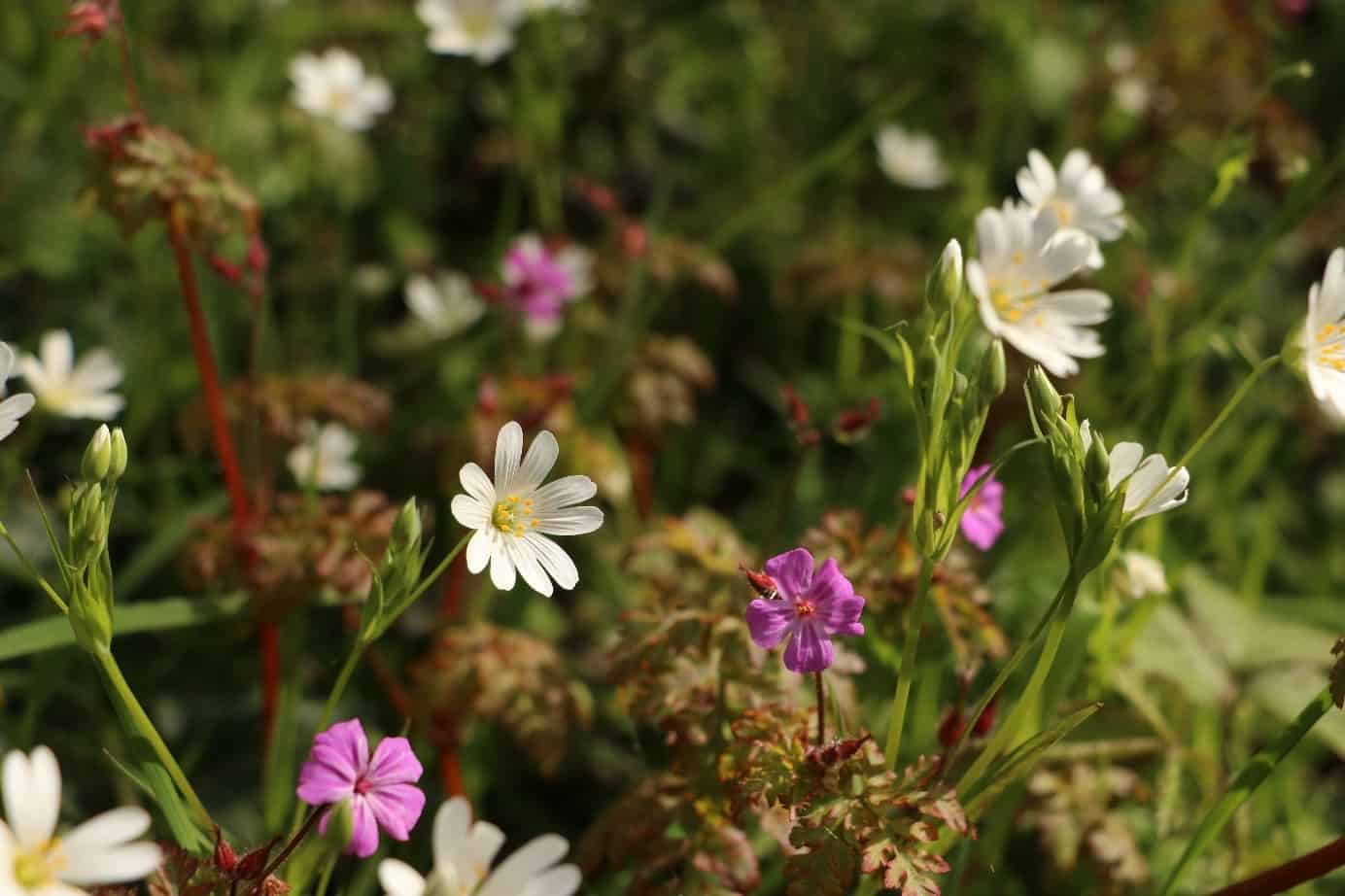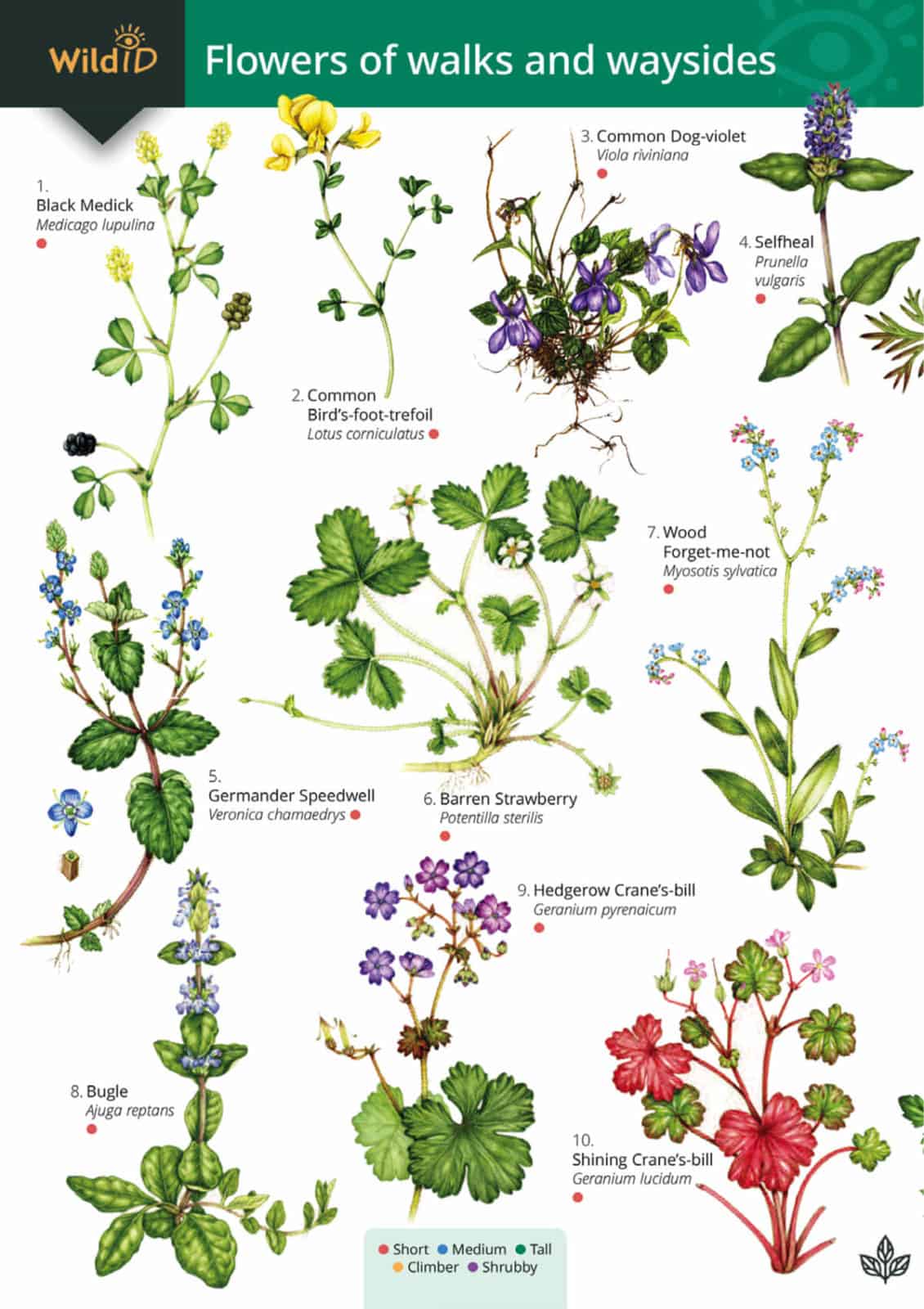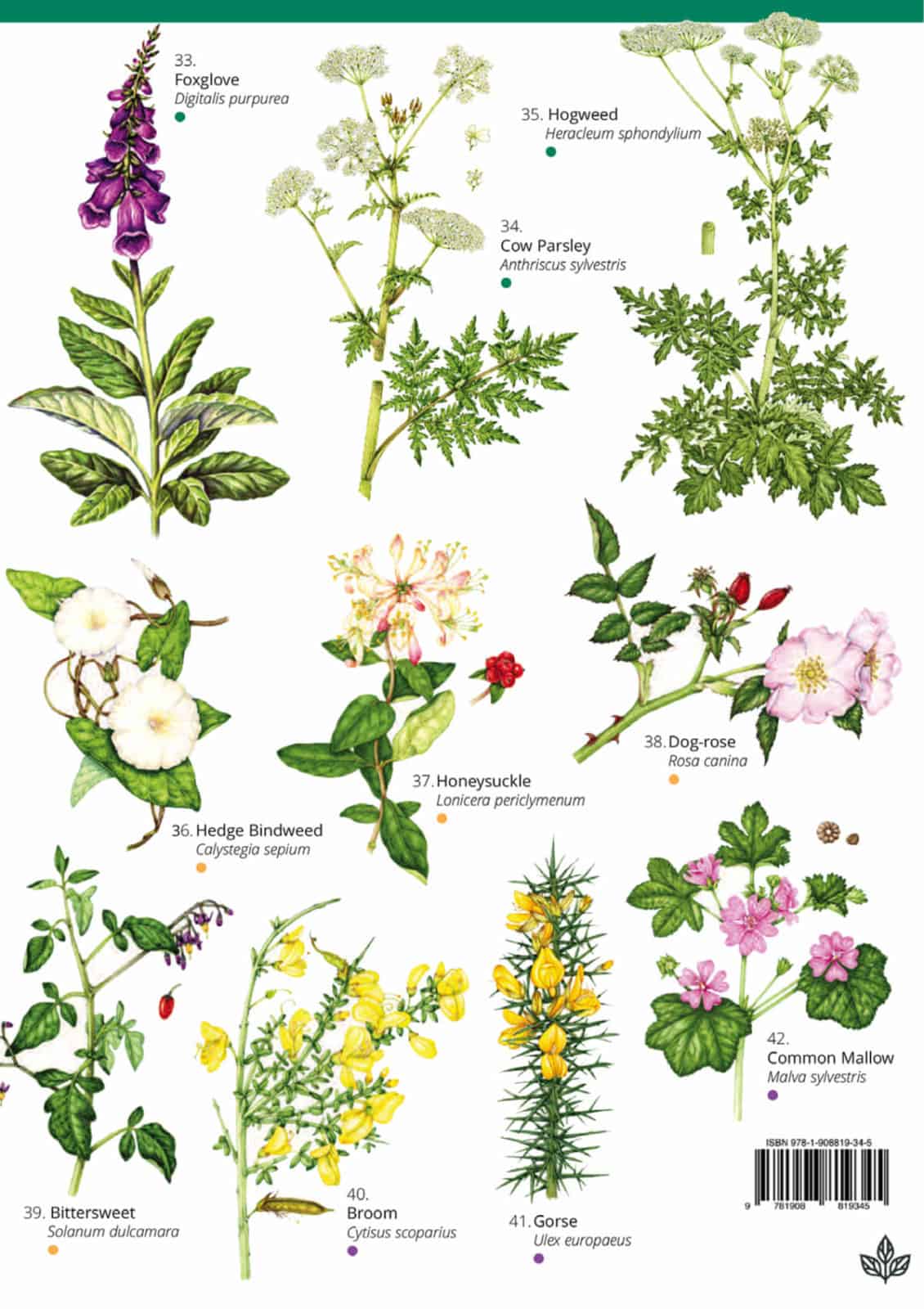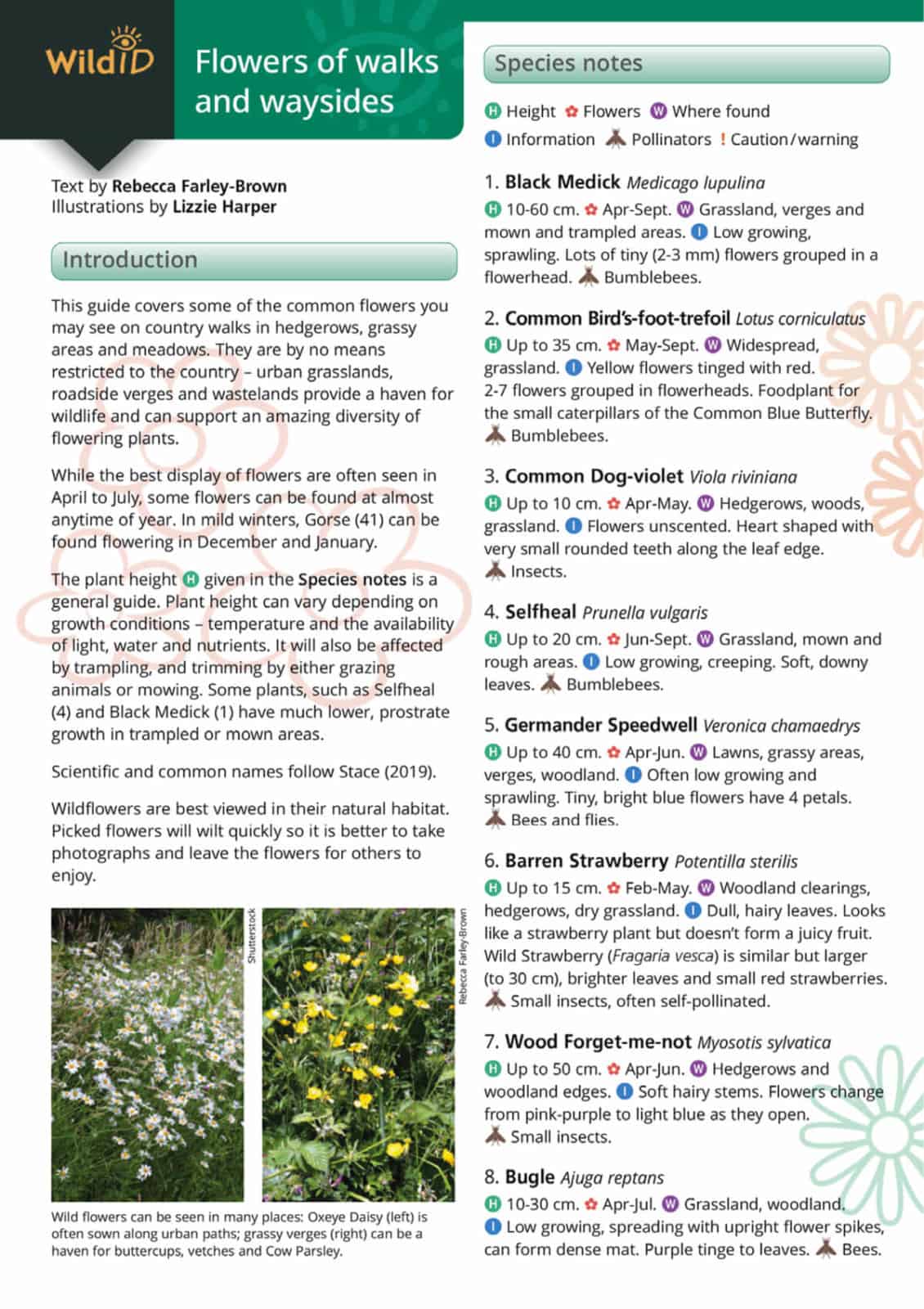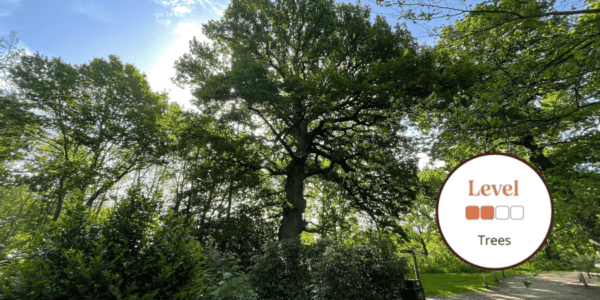Flowers of walks and waysides
Flowers of walks and waysides fold-out guide features 42 common wild flowers of Britain and Ireland.
Are you looking for a fast guide to wild flowers? Grassy tracks, quiet lanes, hedgerows, playing fields and canal towpaths are a great place to look. Often these walks and waysides are a haven for wildlife, supporting an amazing diversity of flowering plants.
As well as the colour paintings, accompanying species notes will help you confirm your identification. These notes cover typical plant height, main flowering period, pollinators and hints for recognising the plant.
A special extra feature is a guide to the pollinators of each of the wild flowers. It is not just bees that pollinate flowers. Other insects such as moths, butterflies, beetles and hoverflies all play a role. Try taking a closer look at a large flower head such as Hogweed just to see how many different types of insect there are feeding on it.
Flowers produce nectar and pollen, important food sources for bees and other insects. Pollen collects on their bodies as they feed. As insects move from flower to flower they take pollen with them, which is then brushed onto the next flower, helping to pollinate it. Once pollinated the flower can produce fruits and seeds.
From Black Medick to Bugle, from Willowherb to Woundwort, the walks and waysides flowers guide features wild flowers to find all year round. Spring and early summer have the best displays of wild flowers, but many plants are found throughout the year. In mild winters, Gorse, Groundsel, Dead-nettles, Hogweed and Herb-Robert are sometimes in flower on New Year’s Day!

